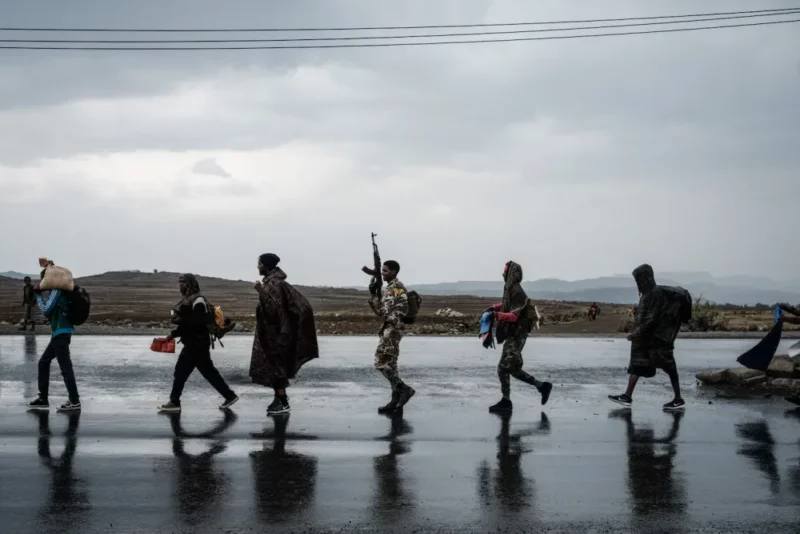Ethiopia and Eritrea once fought a brutal border war that killed thousands, a conflict that eventually led to the hard-won 2018 peace agreement. Unfortunately, that peace is slipping away as tensions rise again.
The warning signs began quietly but steadily. In September last year, Ethiopian Airlines suspended flights to Eritrea after a bank in Asmara, the capital of Eritrea, froze the airline’s bank accounts. According to a report, the bank was following a directive from the Eritrean Civil Aviation Authority, leading to an abrupt halt in commercial ties between the two capitals.
At that time, it was just six years since both nations signed the agreement to end two decades of hostility. Analysts and human rights groups warn that tensions are mounting fast, with fears that another war could devastate millions of civilians already facing dire humanitarian crises.
In February this year, the situation escalated further when Eritrea issued sweeping military mobilisation directives, ordering citizens under 60 to prepare for duty. Those younger than 50 were prohibited from leaving the country. Human Rights Concern Eritrea (HRCE) warned that the sudden mobilisation would send fear through Eritrean society, especially when the age bracket witnessed the country’s controversial involvement in Ethiopia’s Tigray War from 2020 to 2022 that left thousands dead.
Since many already assumed the war could only be with Ethiopia, the group urged the United Nations, the African Union, and foreign governments to cease the action and halt any escalation towards war.
“The African Union in particular should remind Ethiopia of the importance of respecting state sovereignty, and the nation ends all provocative actions,” a statement from the Human Rights Concern Eritrea reads.
Ethiopia responded in March by deploying tanks and troops to its northern borders. Reports indicated heavy mobilisation towards the Assab area along the Red Sea, inside Eritrean territory. Officials offered no public explanation, but the move was widely seen as a response to Eritrea’s military orders.
The current tensions stretch back to 2023, when Ethiopia’s Prime Minister declared that gaining access to the Red Sea was an “existential matter” for his landlocked country. Ethiopia lost its coastline in 1993, when Eritrea, formerly part of Ethiopia, gained independence after a decades-long war of secession. A UN-supervised referendum that year confirmed Eritrea’s sovereignty, leaving Ethiopia without direct access to the sea.
In the immediate aftermath, Ethiopia continued to rely on Eritrea’s Assab port for much of its trade. That arrangement collapsed with the outbreak of the Eritrea-Ethiopia War, which lasted between 1998 and 2000, when borders were sealed and economic ties severed. Since then, recurring disputes over borders and maritime access have kept relations tense.
Ethiopian Prime Minister Abiy Ahmed told the country’s parliament that the Red Sea was “the natural border of Ethiopia” for the landlocked country. Government officials in Eritrea quickly interpreted Abiy’s remarks as a veiled territorial claim on Eritrea’s Assab port.
In his response, Eritrean Foreign Minister Osman Saleh told reporters that “Eritrea is perplexed by Ethiopia’s misguided and outdated ambitions for maritime access and naval base through diplomacy or military force.” He urged the international community to pressure Ethiopia to respect sovereignty and territorial integrity.
The rhetoric is a far cry from 2018, when Abiy and Eritrean President Isaias Afwerki declared their intention to “demolish the wall and, with love, build a bridge between the two countries.” Though despite that optimism, hostilities never truly ceased.
Now, many observers believe the region is sitting on a powder keg. Former US and EU envoys to the Horn of Africa (Djibouiti, Ethopia, Eritea, Somali), Payton Knopf and Alexander Rondos, likened the situation to “dry tinder waiting for a match that could ignite an interstate war between Ethiopia and Eritrea.”
The stakes stretch far beyond the two countries’ borders. Sudan’s civil war has already destabilised the region, and another Ethiopia-Eritrea war could create what Martin Plaut, a journalist in the region, described as “a stretch of armed conflict extending from the Libyan border with Sudan all the way to the Ethiopian border with Djibouti.” With multiple crises converging, the region faces the urgent task of preventing another catastrophic war.













